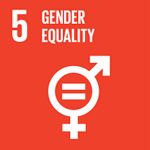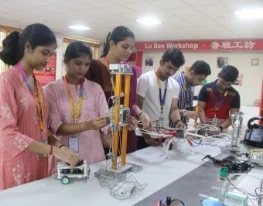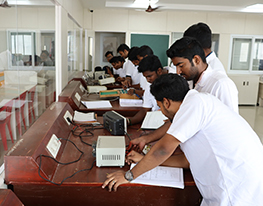- Home
- About Us
About us
Committee
- Admission
- Academics
Departments
- Artificial Intelligence and Data Sciences
- Computer Science & Business Systems
- Computer Science & Engineering
- CSE (Cyber Security)
- CSE (AI and Machine Learning)
- Information Technology
- Electronics and Communication Engineering
- ECE (Advanced Comm. Technology)
- EC (VLSI Design & Technology)
- Biomedical Engineering
- Electrical & Electronics Engineering
- Mechatronics Engineering
- Mechanical Engineering
- Civil Engineering
- Sciences & Humanities
- Placements
- Infrastructure
-
Tnea
Code 1399


Achieve gender equality and empower all women and girls
Gender equality is not only a fundamental human right, but a necessary foundation for a peaceful, prosperous and sustainable world. There has been progress over the last decades, but the world is not on track to achieve gender equality by 2030. Women and girls represent half of the world’s population and therefore also half of its potential. But gender inequality persists everywhere and stagnates social progress. On average, women in the labor market still earn 23 percent less than men globally and women spend about three times as many hours in unpaid domestic and care work as men. Sexual violence and exploitation, the unequal division of unpaid care and domestic work, and discrimination in public office, all remain huge barriers. All these areas of inequality have been exacerbated by the COVID-19 pandemic: there has been a surge in reports of sexual violence, women have taken on more care work due to school closures, and 70% of health and social workers globally are women. At the current rate, it will take an estimated 300 years to end child marriage, 286 years to close gaps in legal protection and remove discriminatory laws, 140 years for women to be represented equally in positions of power and leadership in the workplace, and 47 years to achieve equal representation in national parliaments. Political leadership, investments and comprehensive policy reforms are needed to dismantle systemic barriers to achieving Goal 5 Gender equality is a cross-cutting objective and must be a key focus of national policies, budgets and institutions.
Metrics
 SDG Goals
SDG Goals
- 01 – No Poverty
- 02 – Zero Hunger
- 03 – Good Health and Well-being
- 04 – Quality Education
- 05 – Gender Equality
- 06 – Clean Water and Sanitation
- 07 – Affordable and Clean Energy
- 08 – Decent Work and Economic Growth
- 09 – Industry, Innovation and Infrastructure
- 10 – Reduced Inequalities
- 11 – Sustainable Cities and Communities
- 12 – Responsible Consumption and Production
- 13 – Climate Action
- 14 – Life below Water
- 15 – Life on Land
- 16 – Peace, Justice and Strong Institutions
- 17 – Partnerships for the Goals

















